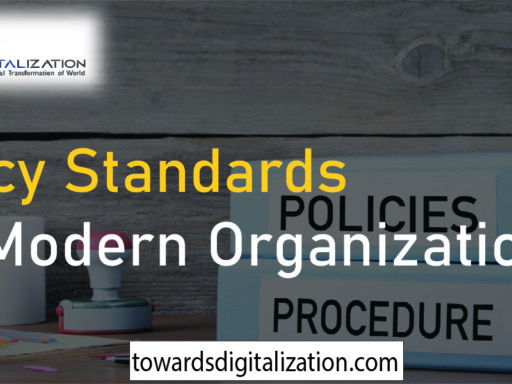Introduction
Business Management and Administration is a constantly developing field that involves planning, organizing and controlling resources in order to reach organizational goals. To be efficient and effective, businesses must employ strategic thinking and decision making processes as part of their daily routine.
After investing resources such as finance, human capital and time in planning their strategies. Companies invest resources such as finances, human capital and time to execute these plans. Team leadership plays a crucial role in motivating teams and employees to perform at their maximum. Therefore, good interpersonal and communication skills are crucial in managing external and internal relations within a company.

Due to the ever-evolving business landscape, agility and adaptability are critical in staying ahead of competitors. Furthermore, continuous evaluation and monitoring of performance allows managers to adapt strategies as necessary in order to reach business objectives more quickly. Therefore, effective management and administration are vital components in driving productivity, driving growth, and guaranteeing long-term viability of any organization.
Understanding of Business Management and Administration
Business Management and Administration refers to the practice of organizing, planning, directing and governing resources of an organization to meet certain goals. This may include financial assets, human capital materials information etc. In contrast, business administration refers to putting the strategies and plans developed by management into action so as to align daily operations with company goals.
Management and administration are often confused; however, their roles differ significantly in focus. While management tends to prioritize setting goals, empowering people, and controlling activities to meet them. Administration typically entails routine tasks, adhering to guidelines, and supporting an organization’s structure.
The Pillars of Effective Business Management and Administration
Effective Business Management and Administration rests upon several pillars that help balance strategic goals with operational implementation, such as:
1. Planning and Strategy Development
Business Management and Administration begins with planning. This step includes defining your business’s goals, and outlining a path for their achievement. As well as creating an action plan to move the company toward its success. Strategic planning is also integral as it establishes direction of business operations while making sure each department aligns to this vision.
Businesses must create both short and long-term strategies in order to meet current requirements while also planning for future expansion. Without an effective plan in place, even resource-rich firms may face difficulties maintaining growth or keeping pace with shifting market trends.
2. Organizational Structure
A well-organized organizational structure is one of the cornerstones of successful management in business. It determines how activities are planned and controlled to reach company goals, aids communication between employees, increases decision making efficiency and ensures every worker understands his or her role.
Hierarchical systems with clearly-delineated roles and responsibilities are common among large corporations. While more flexible or flat structures may be utilized by smaller firms to allow faster decision-making with less layers of administration.
3. Leadership and Motivation
A key to any organization’s overall success is leadership and motivation of its employees. Leaders inspire them, cultivate company culture, and motivate employees towards reaching objectives set forth by the company. Leadership becomes even more essential during times of transition or crisis when an ability to influence others with difficult decisions as well as make difficult choices can determine the company’s ability to overcome hurdles and move forward stronger than before.
Motivation is also crucial. Motivated employees tend to be more productive, enthusiastic and eager to contribute their best effort toward business success. Managers should employ various strategies that encourage employees – giving rewards and creating clear goals. In order to motivate staff members and ensure an environment which fosters employee happiness and satisfaction. Communicating effectively between management members and staff members will ensure all feel valued.
4. Resource Management
Efficient resource management is key to effective business administration. Both human capital and financial capital must be utilized strategically for maximum effectiveness of operations. Proper resource management includes forecasting, budgeting and financial planning processes which are all essential in keeping companies thriving while limiting expenses that prevent growth.
An effective manager must ensure that only top talent works in each position and allocate financial resources efficiently while using cutting-edge tools and technologies to streamline operations and reduce expenses. Being able to effectively oversee these aspects is vital for keeping operations going and meeting business goals.
5. Communication and Coordination
Good communications is integral to effective business management. Managers must communicate the company’s mission and values clearly to all employees, customers, suppliers and other relevant parties; top-down and bottom-up communications should take place, allowing information to freely flow throughout an organization; open dialogue fosters resolution of disputes among staffers as well as an increase in trust between workers.
Coordination ensures that all elements of a business work in harmony. This reduces redundancies, eliminates confusion, and ensures full operation of a business. When applied between teams or departments effectively, coordination can enhance efficiency, morale and overall performance.
The Role of Business Administration in Organizational Success
Management’s role entails leadership and strategy development; administration ensures these strategies are put into effect effectively daily. Business administration oversees operational aspects that enable the company to run smoothly.
1. Policy Implementation
Administrative management has an essential duty: applying policies and procedures. These govern daily operations within an organization from human resource management through to financial reporting. Administrators ensure these guidelines are consistently applied at every level of business operations.
Effective implementation of policies ensures that businesses abide by law, reduce risks associated with failure and conduct their business ethically. By enforcing policies, business administration can assist companies in avoiding mistakes while making sure staff operate according to established guidelines.
2. Financial Management
Financial management is an essential element of business operations. This process includes controlling budgets, assuring accurate accounting procedures are adhered to, as well as overseeing all financial transactions. A proper financial system ensures a company has sufficient funds for meeting obligations and investing in growth opportunities, while helping managers monitor business performance with real-time data for informed decision-making purposes.
3. Operations Management
Operations management encompasses overseeing the creation of services and goods and ensuring they reach customers on time and on budget. This covers inventory control, supply chain coordination, quality of control measures as well as customer support services. An administrative team usually works alongside various departments to ensure operational processes are in place so there is uniformity when providing services to customers.
Focusing on operations, business administration assists in identifying inefficiencies, streamlining production schedules and implementing methods that increase efficiency and customer satisfaction.
4. Compliance and Risk Management
In today’s fast-paced business environment, owners must remain cognizant of local as well as international rules and regulations that impact their businesses. Business administration plays a crucial role in ensuring their companies comply with all industry standards as well as environmental restrictions, labor regulations and tax obligations.
Administration plays an essential role in risk management. Recognizing potential operational, financial or reputational risks and developing plans to mitigate them are vitally important in maintaining long-term stability for any company. A competent administration team conducts evaluations on potential risks while monitoring them on an ongoing basis as a preventative measure against unexpected issues that might arise.
Challenges in Business Management and Administration
Management and administration within any business provide the foundations for success; however, as with any undertaking there can be unexpected hurdles during implementation. Some of the more prevalent challenges include:
- Resistance to Change: Employees may resist new ideas or adjustments to strategies, making it more challenging for managers to meet their objectives.
- Resource Constraints: Businesses may encounter limitations to their resources or finances that prevent them from fulfilling plans efficiently.
- Market Uncertainty: External influences like recessions in the economy, competition or global events may disrupt business operations and cause significant uncertainty for your operations.
- Communication Breakdowns: Uncertainties Can be Causing Communication Breakdowns [Browse Image Gallery] Uncertainties can create chaos within an organisation and hinder its efficiency, leading to miscommunication, confusion and inefficiencies.
- Technological Disruptions: Companies may find it challenging to stay ahead of technological advancements, necessitating investments in training and the latest tools in order to keep up.

Future of business management and administration
Future of Business Management and Administration is set to undergo dramatic shifts driven by technological innovations, globalization and changing work patterns. Companies will increasingly rely on automation and artificial intelligence to streamline operations, reduce costs and enhance decision-making efficiency; this will free organizations to focus on strategic objectives rather than mundane tasks.
Data-driven decisions are predicted to play an increasingly essential role. With big data’s arrival, companies will utilize analytics to gain insight into consumer and market behavior as well as operational efficiency. This allows managers to make immediate informed decisions to keep their company current with market shifts and adaptable for change.
Future Business Management and Administration will place greater importance on adaptability and flexibility. With global markets rapidly changing, companies must develop a culture of constant development and agility to remain relevant in an increasingly fast-moving global environment. This means reevaluating traditional models of leadership to empower employees at all levels to make decisions faster. While taking a more cooperative approach when making decisions.
Sustainability and Corporate Social Responsibility will become central themes on the agenda in 2017. Investors, consumers and employees all expect companies to not just focus on profit but also address social and environmental concerns. Eventually, management of business will incorporate sustainability strategies into its core strategies so as to create long-term value both for themselves and society at large.
Remote work and digital collaboration tools will transform the way teams collaborate on project teams, as well as how project projects are managed. As more businesses embrace hybrid models of work, managers will need to come up with creative ways of managing employees to maximize productivity while cultivating an environment conducive to collaboration in virtual workplaces.
Conclusion
Business Management and Administration are essential components of business success. While management focuses on leadership, strategic planning and resource allocation, administration ensures efficient application and implementation. By cultivating an efficient organization with clear communication lines and well-managed resources, companies can overcome obstacles that stand in their way and become poised for long-term success over time. Businesses who take a proactive approach towards managing and management will find they are better able to thrive despite ever-evolving global environments.
Frequently Asked Questions
Question 1: What does business management and administration do?
Both professions can lead to leadership positions; business administration specializes in the technical and operational side of running a company while business management emphasizes strategic management and planning.
Question 2: What is field study of business administration and management?
Management and administration in business involves studying ways to organize, direct and oversee the functions and operations of institutions and organizations in order to meet business objectives.
Question 3: What is administrative management in business?
Administrative Management refers to the distribution of information among individuals. It often includes administration and sharing data among employees within an organization. A great many jobs in business require some form of administrative management.
Question 4: What is business administration and its scope?
Business management encompasses many facets, from marketing and human resources, technology and finance, through to project administration and project oversight, among others.
Question 5: What is the importance of administration and management?
Management of administrative processes is key to increasing overall results and efficiency for any business. Successful administration requires dedication, time and efficient procedures; our suggestions below can help ensure effective administrative control for your organization.








